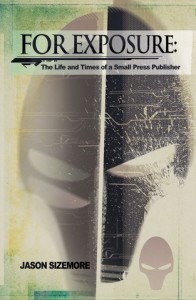Every day we read more and more headlines. Layoffs. Record numbers of foreclosures. Bailout. Inflation. While many of these headlines come as no surprise to us, when the word “recession” turns into something that affects our shopping habits, we tend to feel the pinch on a more personal level. Economic recovery is not a “switch” that can be flipped, however. It could take months, maybe even a few years before we see true, steady growth. The idea that the economy takes a long time to develop is something we all know, but sometimes forget — especially since the way we communicate is so rapid and instantaneous.
Regardless of your opinions about how long the economic recovery might take are, we can all agree that it will affect us in different ways. (Like my April post where I described ways freelancers can navigate a recession.) Already we’re seeing activities that directly affect freelancers, so without further ado here are my predictions how the economy will affect freelancers in 2009.
Top 15 Ways the Economy will Affect Freelancers in 2009
1. When Jobs Get Cut, Outsourcing Goes Up – The biggest expense any employer has is payroll, which is one of the reasons why there have been so many layoffs as of late. Unfortunately, when workers are cut the business may experience a different kind of cost — the cost of smart, intelligent, capable people that know their business and can get the job done. Watch for more businesses hiring and outsourcing contractors in 2009 as a way to cut costs and prolong hiring full-time employees.
2. More People will try to Break Into Freelancing – The flip side to layoffs, is that there are a lot of unemployed people out there. Qualified, skilled workers who may (or may not) have freelanced before will ply their hand at it. Already you can see this might be the case based on natural search trends for the term “freelancing jobs.” (I used Google Trends and tailored my results to the US.) Additionally, more people will be attracted to freelancing as a way to cut down on their cost-of-living (i.e. car, clothing, etc.).
3. Freelancing Rates Will Drop – Content networks are offering pennies on the dollar now for posts that either require research, as a result of a bidding service or a large social network to be able to monetize your writing. Associated Content, eLance, Demand Studios and oDesk are just a few of those places. With more competition, expect a lack of clarity as to what clients will expect to pay. This is especially true for writing; I can’t speak for the other fields.
4. Clients Will Want More “Value-Add” Service Than What They’re Paying You For – A flood of available contract positions in the market, coupled with more competition and a larger disparity in pricing will push clients in the direction of asking more for their money. Whether this be an additional layer of edits or consulting time, freelancers will not only have to prove why they charger higher rates, but negotiate more.
5. Clients Will Look for “Proof” of Delivery and Work – Based on how freelance writers charge, clients will be watching more closely what is delivered (and when). I predict that this will be especially true of any project where the budget is based on how many hours that are billed. Clients will want to know a) how long does a project take and b) what did you do during that hour.
6. Clients Will Learn about Quality – The flip side to hiring a writer on the “cheap” side is that the quality can suffer. I feel that eventually clients will come to understand this after going through the painful cycle of hire-and-fire a few times before understanding that hiring the right writer for the right job may mean looking for an experienced freelancer.
7. More Freelance Writers Will Become Web 2.0 Savvy – In order to become more competitive, existing freelancers will research ways to enhance their writing skills and learn more about search engine optimization, social media and other “value-adds” to integrate into their work and find better positions.
8. New Freelance Writers Will Work More for Less – The natural tendency when freelance writers just start out, is to undercut their profit by charging less to get more work. If new freelance writers are in dire financial straits, they will take whatever they can get.
9. Good Freelance Jobs Will be Harder to Find – Because there will be a flood of new freelance jobs on the market, coupled with the assumption that companies will ask their existing employees to do more than they have in the past, good freelance jobs will be harder to find. The time that it will take to find a freelance job does have an impact on the overall profit margin of a project, and seasoned freelancers may find they have to look longer than they have in the past for work.
10. Clients Will Initially Hire Based on Specialization – If a financial business lays off two dozen people in their business publications divison, they will probably look for someone with a background in writing for financial publications. To that business, they want someone who understands the industry and its language — even if it’s not expressly written in the communication a freelancer is delivering — because they want to save time “educating” someone new. To them, a financial background might also ensure “quality.” This may change, however, when companies realize that their demands are too specific. A writer who only writes about junk bonds, for example, may not exist.
11. Expect a High Turnover Rate for Freelancers – Burn out, job placement, life… Even though there will be a flood of freelancers in 2009, don’t expect every one of them to stick around. Much of this activity is directly related to economic conditions, and will continue to be in flux until the full-time job market improves.
12. Seasoned Freelance Writers Will Work Smarter, Not Harder – From asking for referrals to making smarter decisions about what they’ll work on, seasoned freelance writers will use their experience to their advantage. In other words, the economy will have less of an impact on seasoned freelance writers than on those who are new to the fold.
13. Freelancing Projects Will Be Shorter – Depending upon how challenging things get for some clients, you may see shorter freelance assignments. Word conservation will be increasingly important this year, depending upon whether or not the project is for online work (i.e. related to natural search) or offline. To a client, a shorter project equates to less money they have to pay a freelancer.
14. Freelancers Will Be More Competitive Amongst Ourselves – Unfortunately, I think that if things get really desperate, there will be more competition between freelancers than teamwork. Healthy competition is a part of freelancing, but it can also turn ugly when inexperienced writers come into the fray, undercutting prices and services. I would like to think that there won’t be more competition among freelancers, but when quality jobs are harder to find I do think you’ll see more, not less.
15. More Freelancers Will Pursue Start-up Websites and eBooks to Make $$$ – On the flip side, I think that experienced freelance writers will move beyond “just” freelance writing this year, offering more additional services including niche websites, non-fiction eBooks and How-Tos. You’ll probably see even more eBooks from savvy professionals geared toward “how-to-break-into-freelancing” as a result.
Agree? Disagree? How do you think the economy will affect the freelancing business in 2009?



